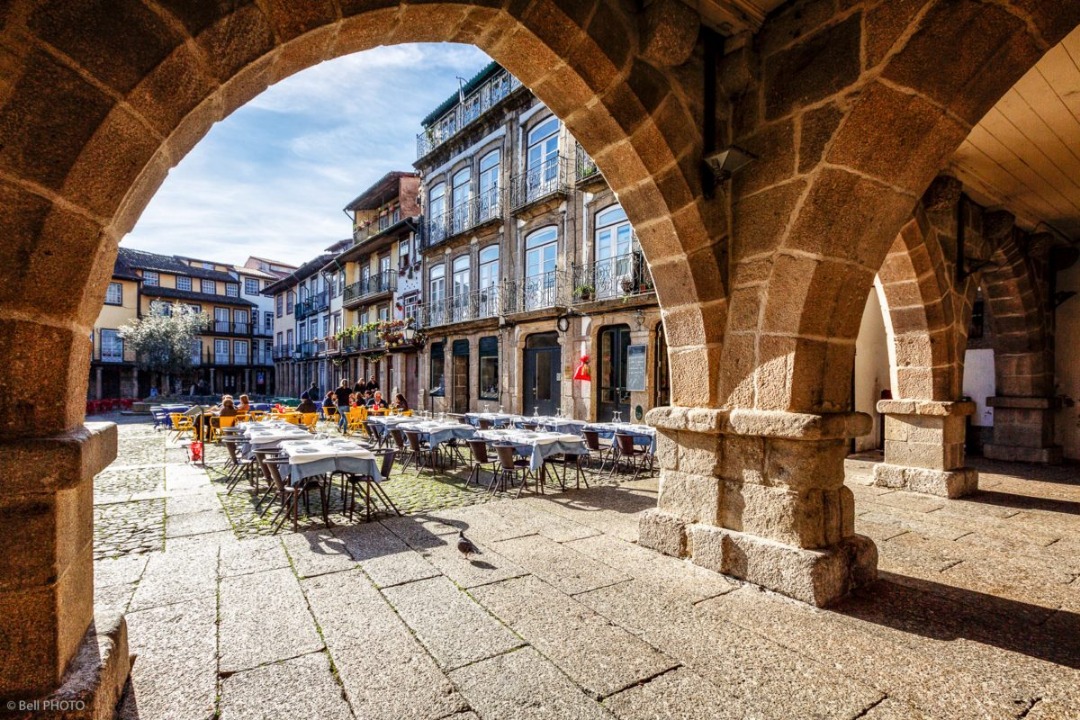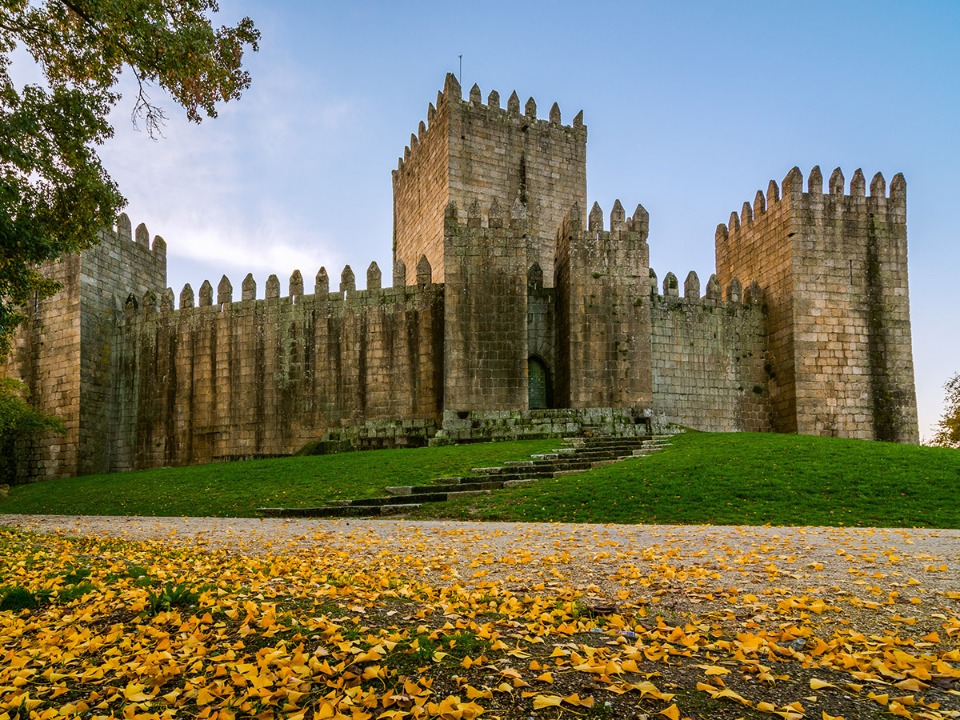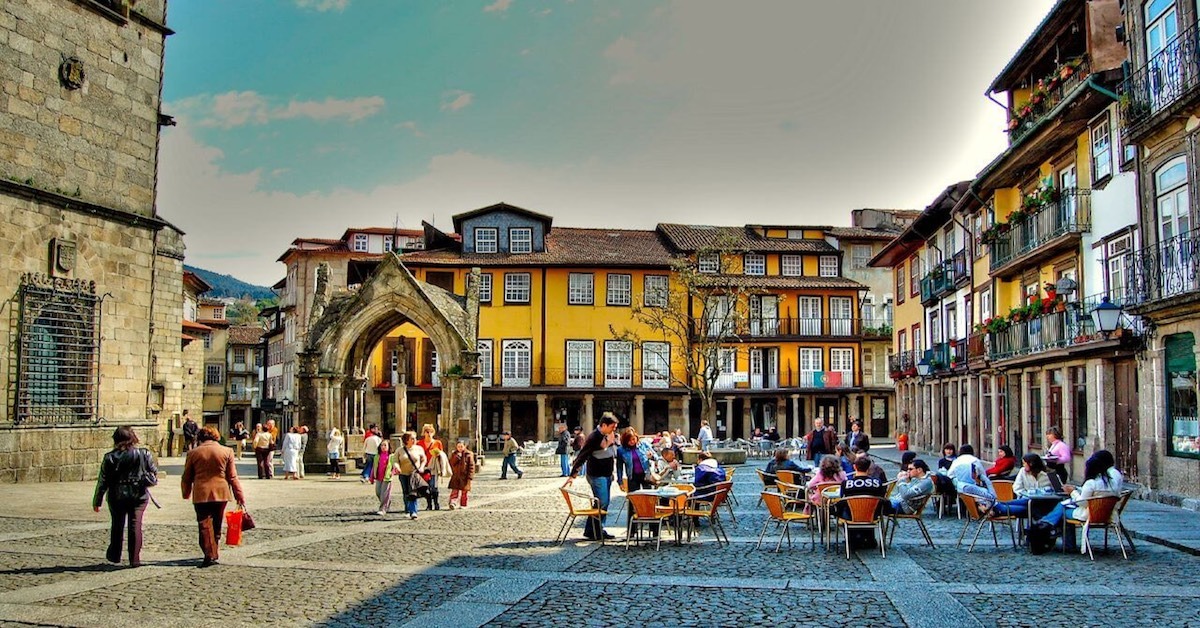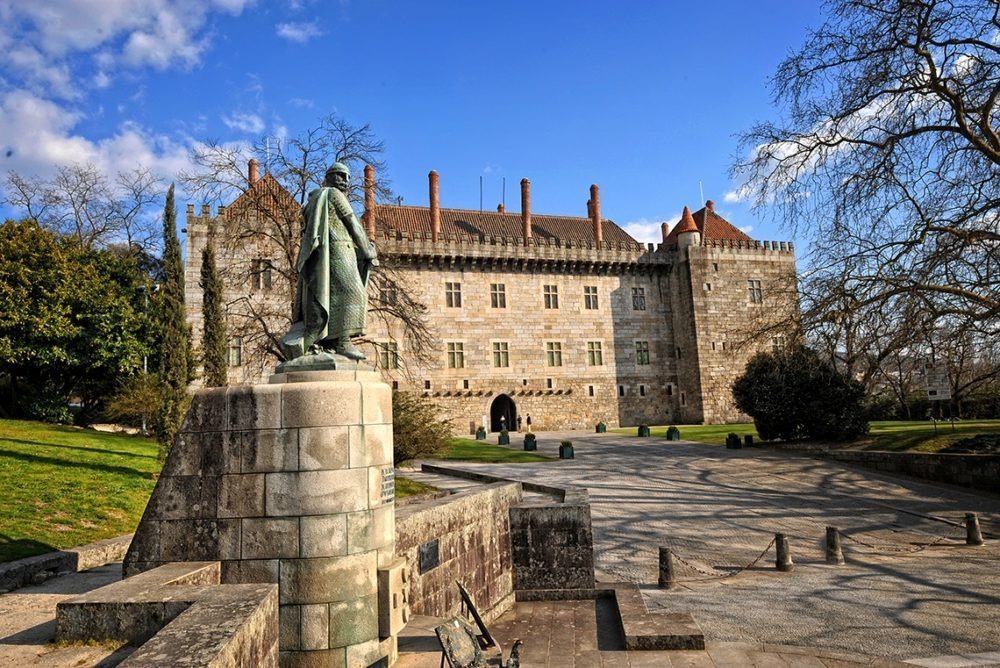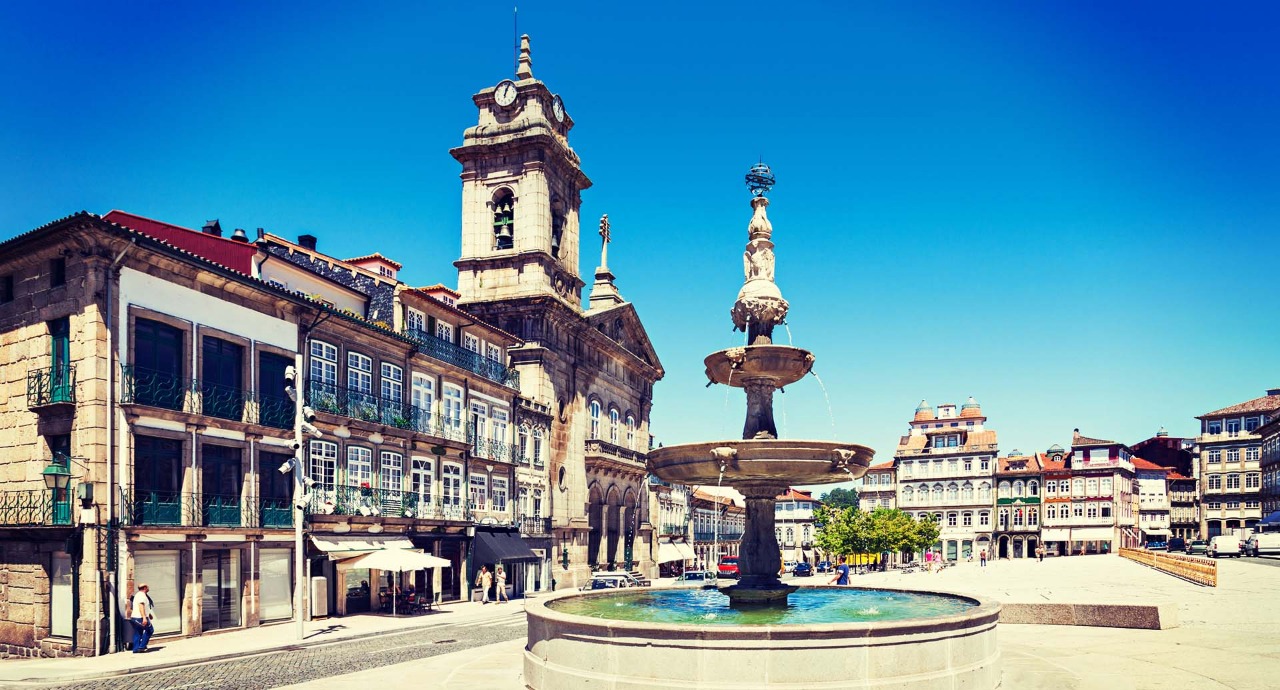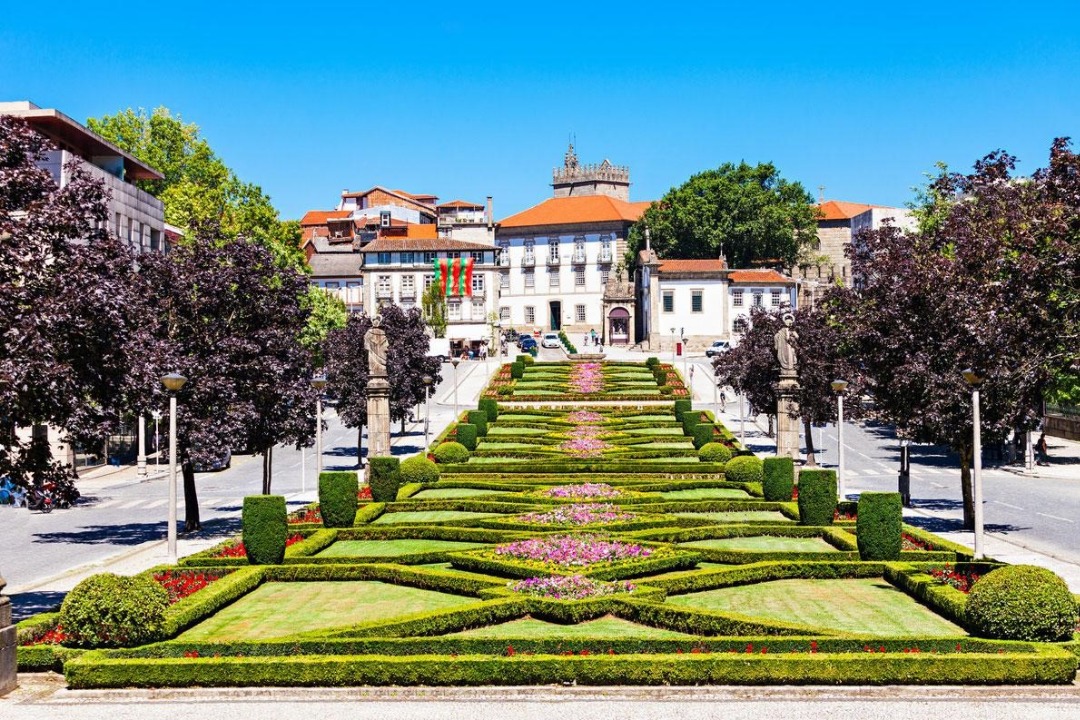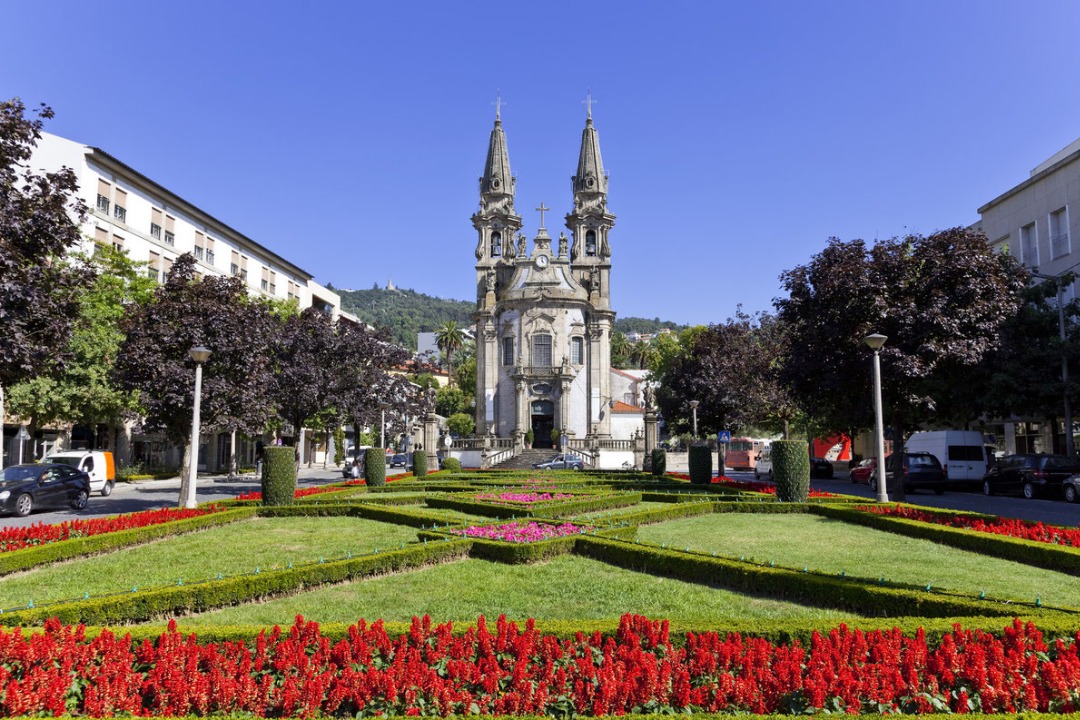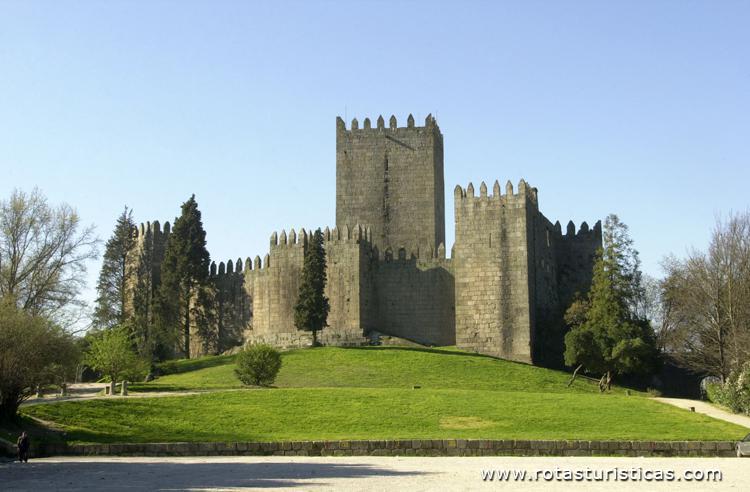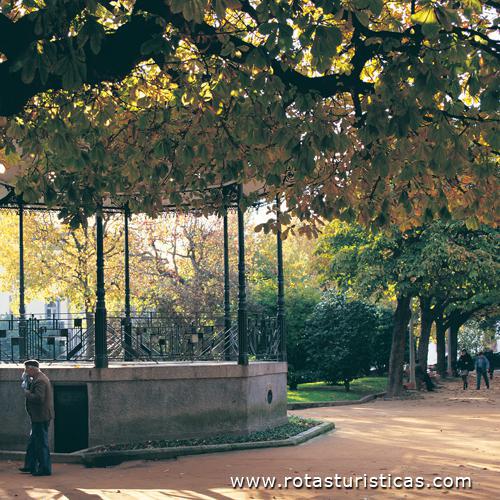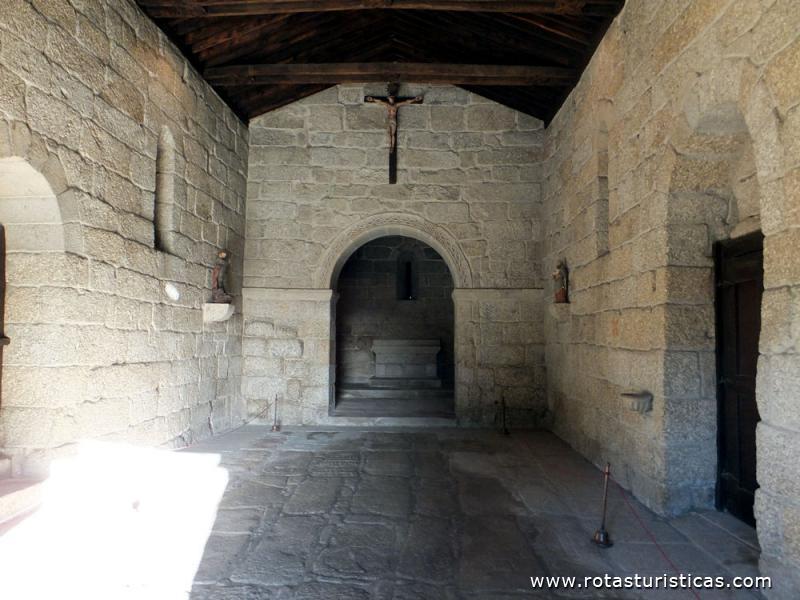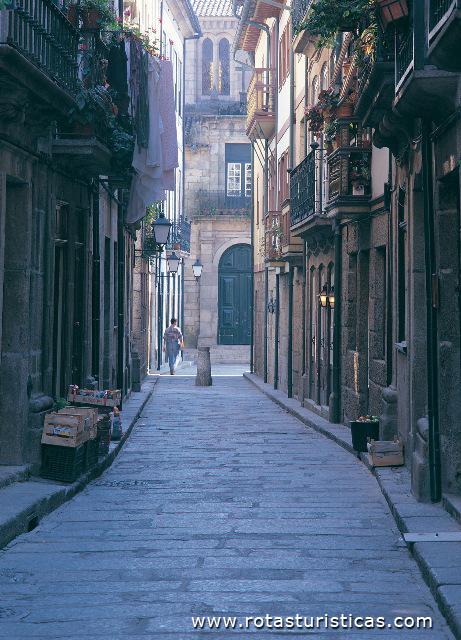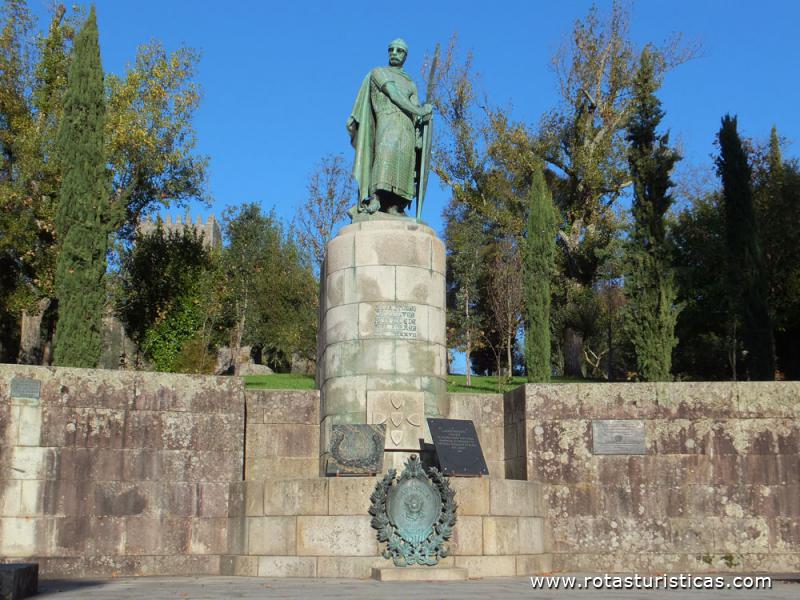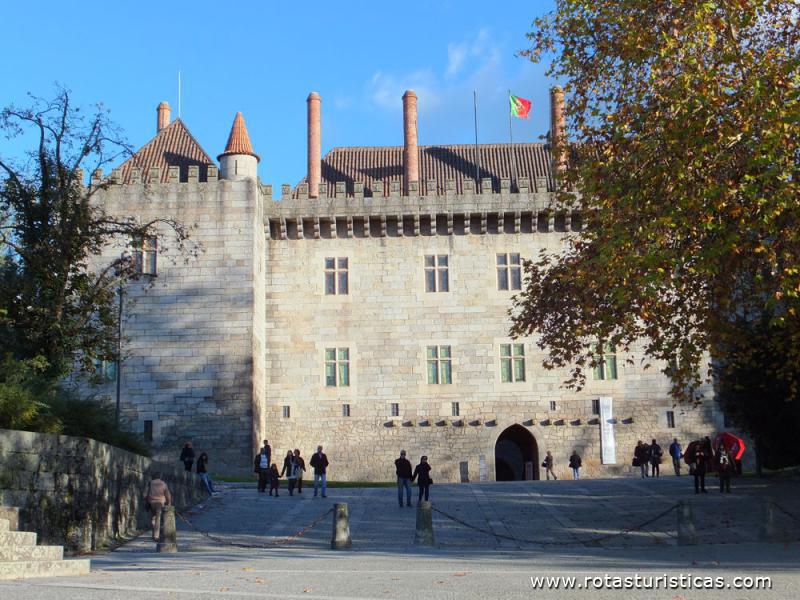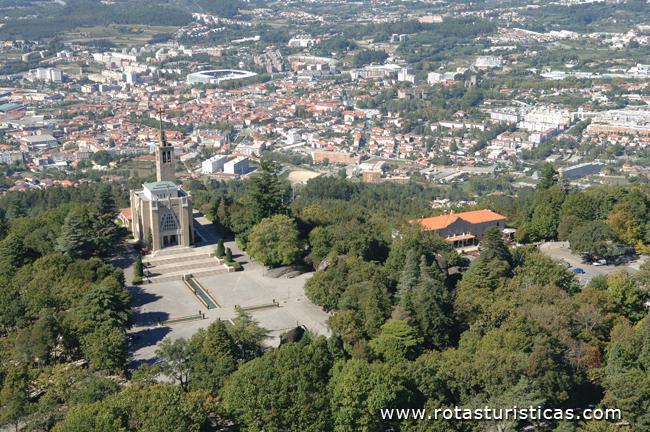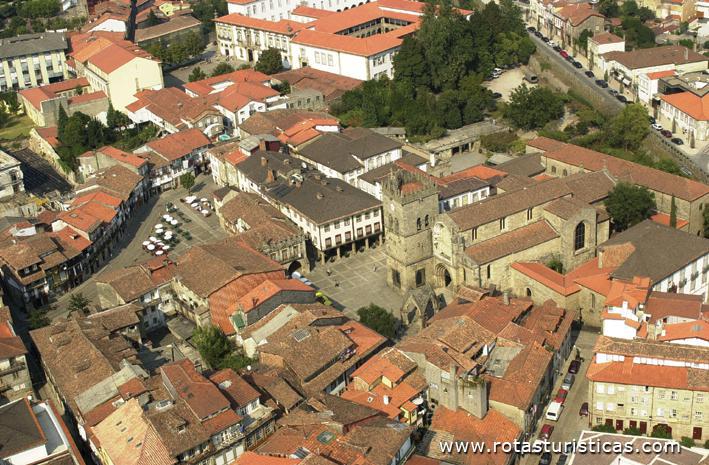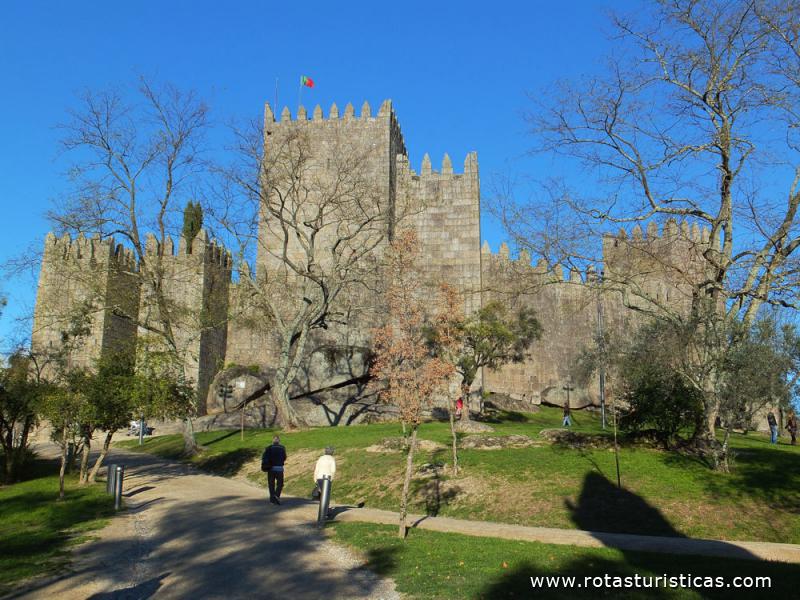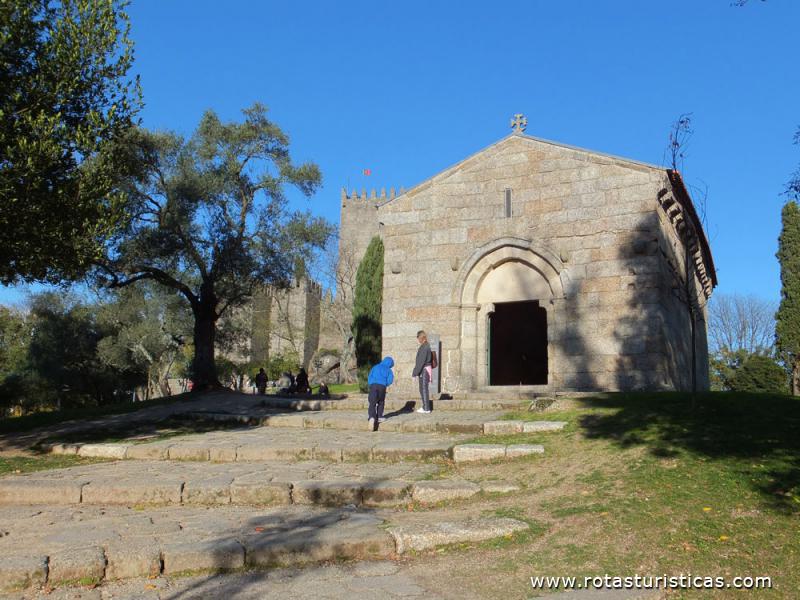Pictures of: Guimarães
Location map
Airports
Hotels and other Accommodation
Golf Courses
What to visit
Where to Eat
Where to have fun
Consulates & Embassies
World Nomads
The Travel Insurance with the largest coverage

The Travel Insurance with the largest coverage

Guimarães
Guimarães is a Portuguese city located in the District of Braga, in the north and sub-region of Ave (one of the most industrialized sub-regions in the country).
It is the seat of a municipality and the majority of the population resides in the city and its peripheral zone. The municipality is bordered to the north by the municipality of Póvoa de Lanhoso, to the east by Fafe, to the south by Felgueiras, Vizela and Santo Tirso, to the west by Vila Nova de Famalicão and to the northwest by Braga.
It is a historical city, with a crucial role in the formation of Portugal, and that counts more than a millennium since its formation, when it was designated as Vimaranes. This place-name may have originated in Vímara Peres in the mid-9th century, when it made this place its principal governing center of the Portucalense county that it had conquered for the Kingdom of Galicia and where it died.
Guimarães is one of the most important historical cities in the country, and its historical center is considered Cultural Patrimony of Humanity, making it definitely one of the largest tourist centers in the region. Its streets and monuments breathe history and delight those who visit it.
It is the seat of a municipality and the majority of the population resides in the city and its peripheral zone. The municipality is bordered to the north by the municipality of Póvoa de Lanhoso, to the east by Fafe, to the south by Felgueiras, Vizela and Santo Tirso, to the west by Vila Nova de Famalicão and to the northwest by Braga.
It is a historical city, with a crucial role in the formation of Portugal, and that counts more than a millennium since its formation, when it was designated as Vimaranes. This place-name may have originated in Vímara Peres in the mid-9th century, when it made this place its principal governing center of the Portucalense county that it had conquered for the Kingdom of Galicia and where it died.
Guimarães is one of the most important historical cities in the country, and its historical center is considered Cultural Patrimony of Humanity, making it definitely one of the largest tourist centers in the region. Its streets and monuments breathe history and delight those who visit it.
Tourism
The Castreja Culture of the north-west of the Iberian peninsula has strong personality and an originality by all recognized.
The Martins Sarmento Society is a Cultural Institution founded in 1881. Its valuable and diversified heritage belongs to the Archeological Museum "Martins Sarmento", the main reference of the castreja culture in Portugal and one of the most important museums in the whole European space where that culture was manifested .
The village of Caldas das Taipas has always been a busy and dynamic place of passage, and a good option for a stop, since it has several attractions, among which stands out a former spa. The therapeutic use of its waters dates back to the Roman Empire.
Thermal Tapes. This spa was already used in the time of the Romans, who built bathing facilities there.
The Castreja Museum of Culture is the first space dedicated to castreja culture, an autochthonous culture that only exists in the peninsular northwest and is the cultural matrix of this Atlantic region of the Iberian Peninsula. The Museum highlights the importance of this culture, and also constitutes the fair pretext of paying homage to the Sage who freed it from the mantle of enchantment with which the Moors hid it for centuries.
The archaeological ruins of Briteiros are an extraordinary proof of the existence of an important primitive village, of pre-Roman origin, belonging to the general type of so-called "castros" of the north-west of Portugal.
The urban rehabilitation policy of the historical center of Guimarães, based on principles of safeguarding medieval morphology and restoring and maintaining traditional construction techniques, is recognized at national and worldwide levels. For this reason the Historic Center of Guimarães was declared a World Heritage Site by Unesco in 2001, bearing in mind the exceptional value of this architectural complex, an authentic testimony to the urban development of the city, containing a huge diversity of formal and constructive expressions that deserve to be preserved and valued.
Castle. In the tenth century the Countess Mumadona Dias, after having become a widow, orders a monastery to be built in her estate of Vimaranes - now Guimarães.
Rua de Santa Maria. It was one of the first open streets in Guimarães, as it was intended to be a link between the convent founded by Mumadona, surrounded by the lower part of the village, and the Castle located in the upper part of the village.
Square of St. James. According to tradition, an image of the Virgin Mary was brought to Guimarães by the apostle St. James, and placed in a pagan temple on a square that was renamed St. James's Square.
Church of Our Lady of Olive. The origins of Insigne and Royal Collegiate of Our Lady of Oliveira go back to the monastery dedicated to the Savior of the World, to the Virgin of Santa Maria and to the Holy Apostles, founded by Countess Mumadona Dias, about 950.
Largo do Trovador. The memory of the "first Portuguese troubadour" is associated with this wide that develops in an inclined space and where previously there existed a Pelourinho.
Rua de Couros. It is along the Rua de Couros that lies the heart of the tradition of tanning and skimming fur in Guimarães.
Set of tanks in Largo do Cidade. At the end of Rua de Couros and entering Largo do Cidade we can observe the old Mirandas tannery factory, Ferreira & Carvalho, Lda that stopped working in the 20th century. This factory resulted from the union of small manufactures that worked here independently. If we look at this structure we see that it is quite irregular and different from the others in the leather area.
Rua de Vila Verde. This street conserves aspects of the way the urban organization responded to the needs of the workers.
Ramada's street. Ramada Street is inextricably linked to the tanning industry and to the industrialization process of Guimarães.
Anchor Factory. The former Ancora factory, now rehabilitated for the Living Science Center, is an icon of the constructive typology of Couros, revealing the pre-industrial architectural universe that was inspired by traditional rural architecture in the form of architectural design, adapting it to new functions.
Ramada Factory. In the whole of the Rua da Ramada stands out the António Martins Ribeiro da Silva factory building, founded in the 1930s and known as the Ramada factory. The Institute of Design is now installed here, as a result of a partnership between the Municipality and the University of Minho.
The Martins Sarmento Society is a Cultural Institution founded in 1881. Its valuable and diversified heritage belongs to the Archeological Museum "Martins Sarmento", the main reference of the castreja culture in Portugal and one of the most important museums in the whole European space where that culture was manifested .
The village of Caldas das Taipas has always been a busy and dynamic place of passage, and a good option for a stop, since it has several attractions, among which stands out a former spa. The therapeutic use of its waters dates back to the Roman Empire.
Thermal Tapes. This spa was already used in the time of the Romans, who built bathing facilities there.
The Castreja Museum of Culture is the first space dedicated to castreja culture, an autochthonous culture that only exists in the peninsular northwest and is the cultural matrix of this Atlantic region of the Iberian Peninsula. The Museum highlights the importance of this culture, and also constitutes the fair pretext of paying homage to the Sage who freed it from the mantle of enchantment with which the Moors hid it for centuries.
The archaeological ruins of Briteiros are an extraordinary proof of the existence of an important primitive village, of pre-Roman origin, belonging to the general type of so-called "castros" of the north-west of Portugal.
The urban rehabilitation policy of the historical center of Guimarães, based on principles of safeguarding medieval morphology and restoring and maintaining traditional construction techniques, is recognized at national and worldwide levels. For this reason the Historic Center of Guimarães was declared a World Heritage Site by Unesco in 2001, bearing in mind the exceptional value of this architectural complex, an authentic testimony to the urban development of the city, containing a huge diversity of formal and constructive expressions that deserve to be preserved and valued.
Castle. In the tenth century the Countess Mumadona Dias, after having become a widow, orders a monastery to be built in her estate of Vimaranes - now Guimarães.
Rua de Santa Maria. It was one of the first open streets in Guimarães, as it was intended to be a link between the convent founded by Mumadona, surrounded by the lower part of the village, and the Castle located in the upper part of the village.
Square of St. James. According to tradition, an image of the Virgin Mary was brought to Guimarães by the apostle St. James, and placed in a pagan temple on a square that was renamed St. James's Square.
Church of Our Lady of Olive. The origins of Insigne and Royal Collegiate of Our Lady of Oliveira go back to the monastery dedicated to the Savior of the World, to the Virgin of Santa Maria and to the Holy Apostles, founded by Countess Mumadona Dias, about 950.
Largo do Trovador. The memory of the "first Portuguese troubadour" is associated with this wide that develops in an inclined space and where previously there existed a Pelourinho.
Rua de Couros. It is along the Rua de Couros that lies the heart of the tradition of tanning and skimming fur in Guimarães.
Set of tanks in Largo do Cidade. At the end of Rua de Couros and entering Largo do Cidade we can observe the old Mirandas tannery factory, Ferreira & Carvalho, Lda that stopped working in the 20th century. This factory resulted from the union of small manufactures that worked here independently. If we look at this structure we see that it is quite irregular and different from the others in the leather area.
Rua de Vila Verde. This street conserves aspects of the way the urban organization responded to the needs of the workers.
Ramada's street. Ramada Street is inextricably linked to the tanning industry and to the industrialization process of Guimarães.
Anchor Factory. The former Ancora factory, now rehabilitated for the Living Science Center, is an icon of the constructive typology of Couros, revealing the pre-industrial architectural universe that was inspired by traditional rural architecture in the form of architectural design, adapting it to new functions.
Ramada Factory. In the whole of the Rua da Ramada stands out the António Martins Ribeiro da Silva factory building, founded in the 1930s and known as the Ramada factory. The Institute of Design is now installed here, as a result of a partnership between the Municipality and the University of Minho.
Gastronomy
The fact that Guimaraes has the germ of the lands of a female convent influenced much of the region's gastronomy, especially in the confectionery industry, as in the cakes of Guimarães and, mainly, bacon in the sky. In addition to what is customary in Minho, such as green wine, sarrabulho potatoes, rojões, etc., the so-called "bolus" is composed of a type of bread (in the form of a pizza) served with pork, sardines or other accompaniments.
Typical dishes of the region:
Codfish With French Fries, Roasted Veal, Onion Fillets, Among Others
Sweet rice, lemon cookies, raisins, sponge cake, among others.
Typical dishes of the region:
Codfish With French Fries, Roasted Veal, Onion Fillets, Among Others
Sweet rice, lemon cookies, raisins, sponge cake, among others.
Weather
Framed between a valley and hills and being away from the coast, the winters are cold and rainy and the summer warm and slightly humid, with the average annual temperature of 14 °.
Other tourist destinations in:
Portugal
Portugal
Other world tourist destinations
Why to book with ROTAS TURISTICAS
The best prices
Our partnerships with the world´s largest operators offer research on the best market prices.
More options
At Rotas Turisticos you can book the hotel, buy the air ticket, book the transfer from the airport to the hotel and vice versa, book the local excursions, rent the car, take travel insurance and consult the places to visit and where to go.
Holiday Tips & Destinations
Hundreds of holiday destinations with all the options that allow you to easily choose the destination that best suits your dream vacation.
ROTAS TURISTICAS
Links

